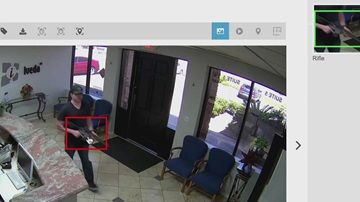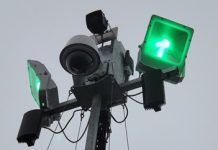Surveillance technology company Iveda recently announced plans to equip three Arizona Navajo tribal school campuses with AI-powered surveillance equipment that will incorporate data collected from the district’s cameras to cover a variety of public safety functions.
This cloud-based technology will provide the Piñon Unified School District with the ability to monitor and alert for unauthorized intruders, smoke and fire, and campus traffic issues with a system that recognizes faces and license plates. It can also report and respond to emergency situations in real time, according to a news release.
“Through the power of AI, we can accurately monitor our nation’s campuses by adding an extra layer of protection so students can focus on what matters most — receiving a top-notch education,” David Ly, Iveda CEO and founder, said in a public statement.
According to the news release, the Piñon district began testing the surveillance technology last year by implementing the AI component into its existing cameras. The system was then set up so school security personnel would receive any security alerts by phone within seconds of detection.
“As our schools continue to grow, there has never been a more pivotal time for Piñon Unified School District to uplevel its on-campus surveillance systems,” Facilities Director Myron McLaughlin said in a public statement. “Identifying and addressing potential threats or concerning behavior among students or unauthorized visitors is more achievable than ever before …”
According to its website, the Piñon Unified School District consists of one elementary school, one middle school and one high school. It’s located within a Navajo reservation in northeastern Arizona that is populated by 2,000 people but also serves several neighboring communities.








